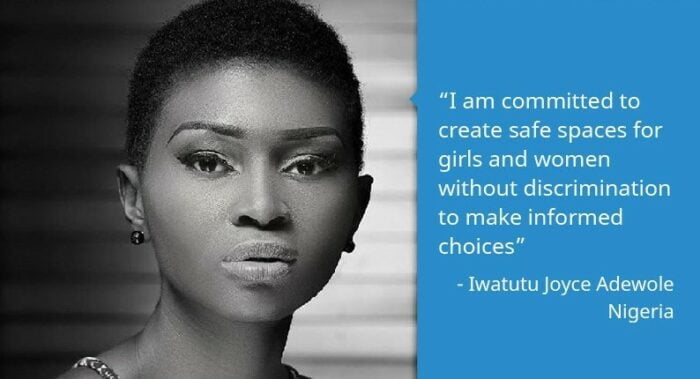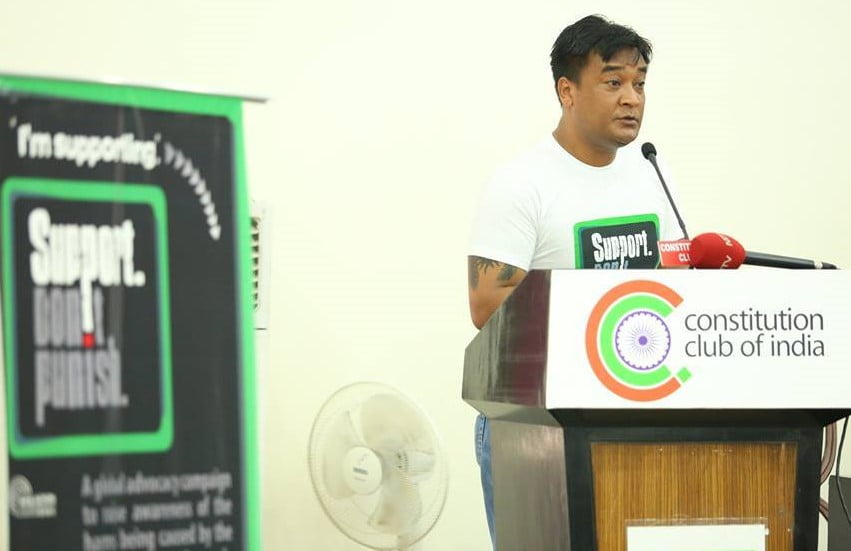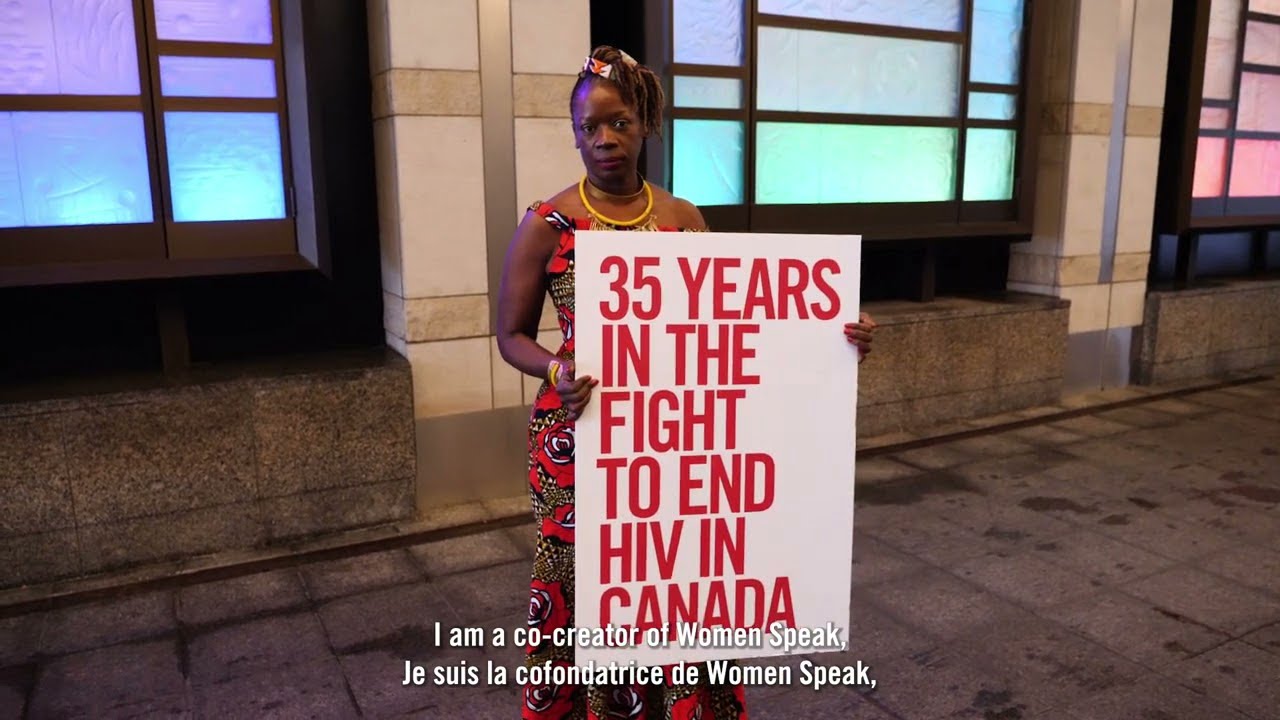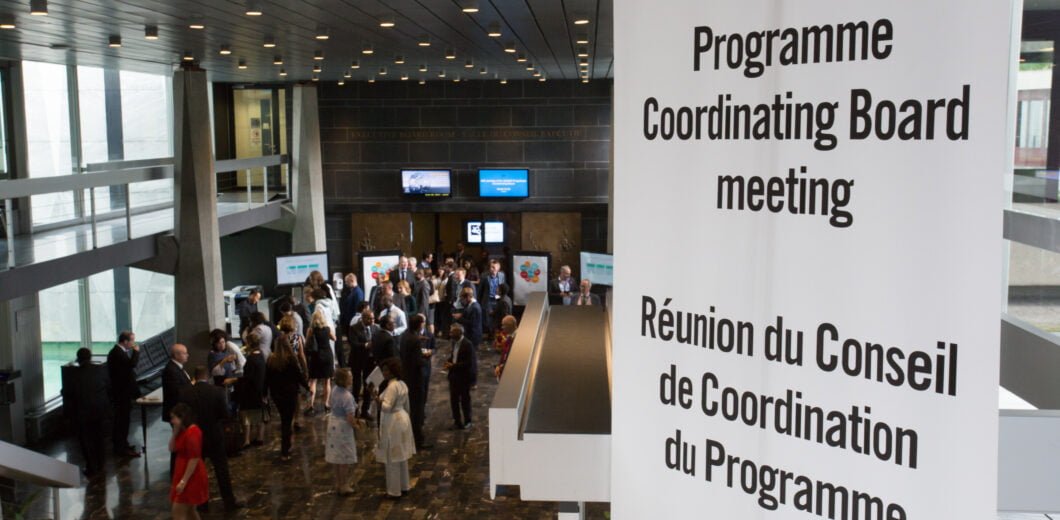Iwatutu Joyce Adewole, African Girl Child Development and Support Initiative, Incoming delegate – NGO Africa

The African Girl Child Development and Support Initiative is a community-based organization founded in 2015 in Nigeria focused on Sexual and reproductive health and rights of adolescent girls and young women. The organization carries out research and advocacy to influence policies and programs that address the linkage between HIV/AIDS, reproductive health, and sexual and gender-based violence. AGCDSI is a member of the SHEWE coalition under the guidance of the International Community of Women Living with HIV (West Africa Region) to advance and bridge SRHR information gaps of adolescent girls and young women living with HIV.
Iwatutu Joyce Adewole is dedicated to creating safe communities for women and girls through policy advocacy, information dissemination, and community building. She works with youth-led organizations to design and implement responsive sexual and reproductive health programs and the evidence-based strategy around HIV/AIDS, malaria, and TB interventions and supports the implementation of the strategy for mainstreaming gender and social inclusion and a human rights approach in program activities. She is the Partnership & Resource Mobilization working group Lead for The PACT, a coalition of youth-led and youth-serving organizations working within the sexual and reproductive health and HIV movement.
Charan Sharma, The Indian Drug Users Forum (IDUF), Incoming delegate – NGO Asia and the Pacific

IDUF is a National level forum that promotes the meaningful involvement of people who use drugs (PWUD) in policy and program development. The core belief behind the formation of IDUF is that PWUD living in various parts of the country coming together with one voice can make a bigger impact on the current situation of drug-related issues and can work more effectively towards creating a better environment for PWUD. IDUF believes that grassroots democratic organizing among PWUD at the local, regional, and national levels can serve as the building blocks for a social movement that has the strength, determination, and staying power to fundamentally change drug policy and programs that affect the lives of drug users.
Charanjit Sharma brings nearly two decades of professional experience in the fields of drug use, HIV/AIDS, and the human rights of people who use drugs. As an activist, he is associated with the global Harm Reduction movement and is a key member of developing guidelines for harm reduction in India and beyond. He is a founding member and current advisor to Indian Drug Users Forum (IDUF). He started his association with harm reduction as a peer educator and now works as Program Manager of drug use and harm reduction with Alliance India. Recently, he was instrumental in advocating with India CCM in securing 10 million USD from the Global Fund for direct support, specifically for HIV key population emergency needs during and after COVID-19.
Maureen Owino, The Committee for Accessible AIDS Treatment (CAAT), Incoming delegate – NGO North America

The Committee for Accessible AIDS Treatment (CAAT) is a coalition of affected individuals and organizations from the legal, health, settlement, and HIV/AIDS sectors committed to promoting the health and well-being of people living with HIV who are facing access barriers related to their status using the tools of education, training, research, service coordination, and advocacy. Founded in 1999, CAAT’s vision is to have a healthy urban community where all individuals living with HIV have the information and tools they need to access health, social, and legal services that are welcoming, inclusive, and respectful regardless of their immigration status. CAAT works to advance the health of affected communities through collective empowerment efforts that engage with diverse partners to build a more compassionate and caring society for all. They work collaboratively with and support the work of local, provincial, national, and global networks through a variety of initiatives.
Maureen Owino is the Director of the Committee for Accessible AIDS Treatment (CAAT), a position she has held since 2007. Maureen’s commitments to Ontario’s community of people living with HIV are unparalleled, and many in Ontario benefit from her vision, leadership, and contributions. Her experience as a racialized woman and an emerging academic in her field has deepened our understanding of HIV stigma, anti-Black racism, and health equity. She has been and is an active organizer and advocate for immigrants, refugees, women, and youth with HIV/AIDS in Toronto. She has been an active volunteer in many organizations, including being a board member of the Black Coalition for AIDS Prevention (Black CAP), Ontario HIV Treatment Network (OHTN), HIV Legal Clinic of Ontario (HALCO), and a steering committee member of the Toronto HIV Network. She is currently a member of the Ontario Advisory Committee on HIV/AIDS (OACHA) and a Community Advisory Committee member for the CIHR Canadian HIV Trials Network (CTN). Maureen is the recipient of the 2017 Ontario AIDS Network’s Caring Hands Award and the 2019 Women’s Health in Women’s Hands Community Health Centre women of resilience awards for resilient leaders. She has a master’s in environmental studies degree from York University is currently a PhD student at York University.
